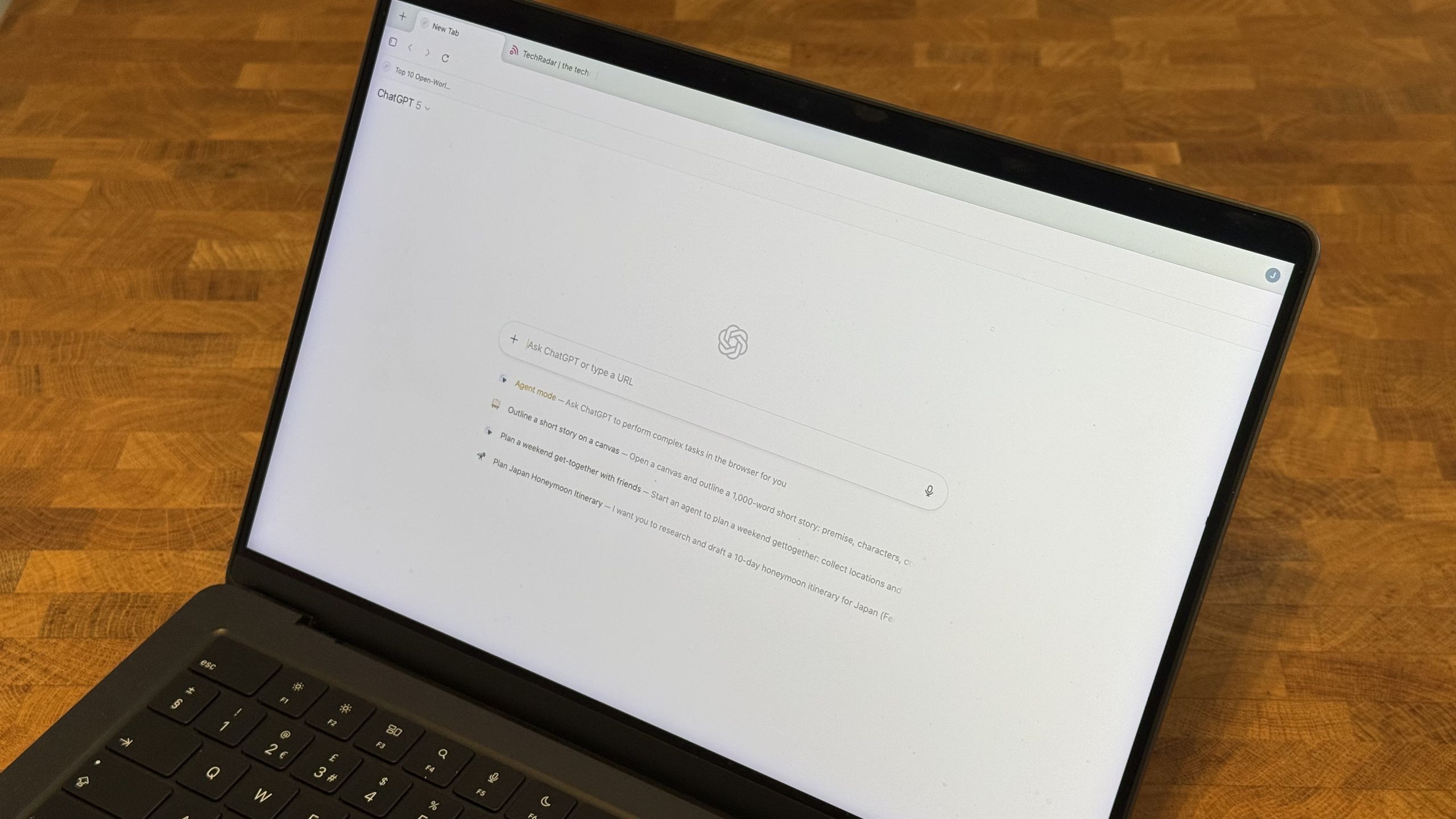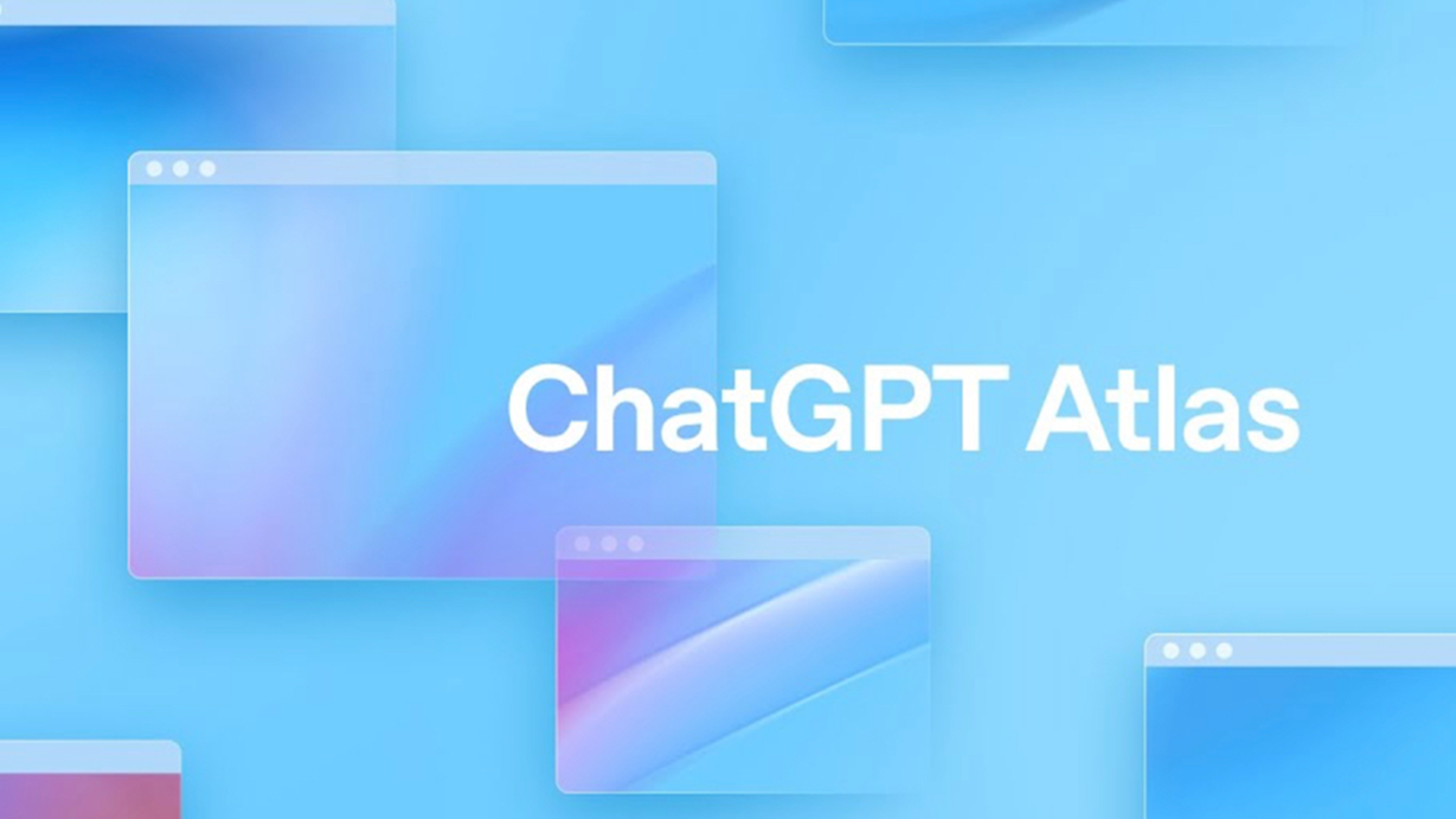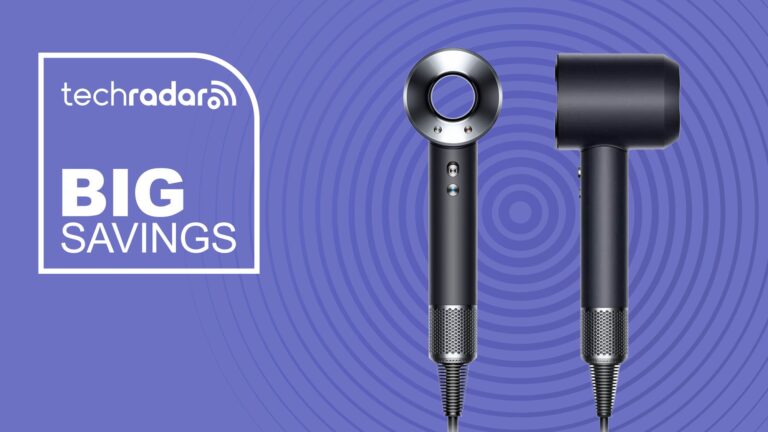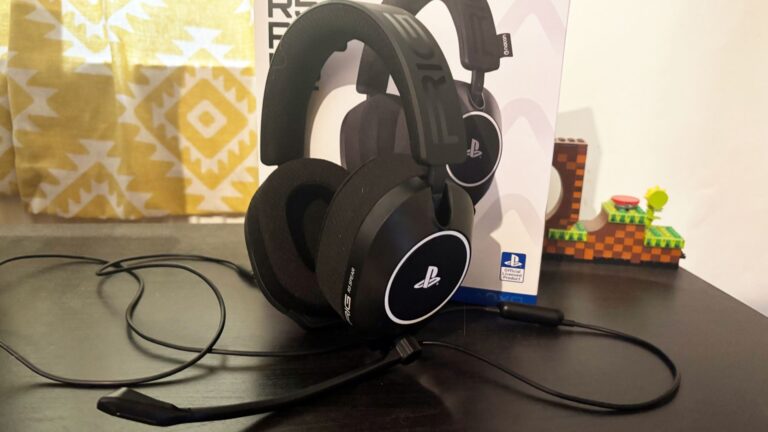
OpenAI announced ChatGPT Atlas yesterday, a new web browser that implements the world’s most popular chatbot directly into your internet experience.
Just like the other agentic web browsers I’ve tried over the last few months, including Perplexity’s Comet and Opera Neon, ChatGPT Atlas incorporates AI into your daily internet experience.
I’ve been using ChatGPT Atlas since it was announced by Sam Altman nearly 24 hours ago, and my experience with the web browser built for Mac, with plans to come to Windows, iOS, and Android at a later date, has been pretty eye-opening so far.
AI at your fingertips
As soon as you open up ChatGPT Atlas, you’re greeted with a minimalist design that’s almost too sanitary. That said, those who want their web browser to look simple with no frills attached, Atlas will tick those boxes.
In essence, it looks like ChatGPT is a web browser, so if you like OpenAI’s design language, you’ll be a fan of Atlas’ straight out of the gate. If not, tough luck, Atlas looks quite bland.
The experience here is pretty straightforward. Open a new tab, type into the big text box in the middle of your screen, and opt to search via ChatGPT, search with Google, or head directly to a website. At first, I was annoyed that I couldn’t find an option to set my default search engine, but in just a few hours, I’ve become accustomed to choosing between ChatGPT and Google depending on what I’m trying to access.
Atlas is built on Google’s Chromium engine, so you can easily incorporate all of your Chrome search history, bookmarks, and logins into OpenAI’s browser, should you choose to do so. It’s pretty easy to get up and running, and in no time, Atlas starts to feel like any other web browser you’ve used in the past.

Watch On
Where Atlas separates itself from the likes of Chrome and works more like Comet and Neon is by allowing you to “Ask ChatGPT” on any webpage you visit. By pressing the button on the right side of Atlas, you can quickly ask ChatGPT anything, whether that’s related to your internet browsing or not. The most popular AI chatbot in the world is just part of the experience, and it works great.
You can reference past chats with ChatGPT because all of its memory capabilities are available directly within Atlas, and you can even access your old ChatGPT chats directly from a sidebar on the left, exactly how it would appear in ChatGPT proper.
Just like other AI-powered browsers, Atlas lets you quickly use a chatbot at the press of a button, and as someone who’s thoroughly enjoyed their experience with Comet and Neon, this feels like the perfect way to interact with AI. Want to get more context for an article you’re reading? Just ask ChatGPT. Need information on another tab you have open without leaving what’s on your screen? ChatGPT will sort it. There are so many scenarios where an AI chatbot in your browser comes in handy, and Atlast thrives in this regard.
All the bells and whistles

Where Atlas separates itself from other offerings on the market is with its deep integration into ChatGPT. For the millions of people who use the AI chatbot regularly, all of those conversations and memories are now directly tied to their online browsing experience. And even better, Atlas itself has browsing memory, so you’ve now got a superpowered web history at your fingertips.
I can’t tell you the number of times I’ve lost track of a website I had previously visited and not found any info in my search history. With Atlas, that appears to be solved, and I’ve been impressed with the AI’s ability to quickly find what I’ve been looking for based on what it remembers.
Aside from having ChatGPT ready to answer any questions whenever you need it to, Atlas allows you to open sources directly into the browser, which makes ChatGPT Search far more viable than ever before.
For example, say I want to find a good article about the upcoming emotionally intelligent AI pet from Casio. I can ask ChatGPT to find me some articles, and then click through via the source. Sounds pretty simple, but in the past, if you used ChatGPT Search for things like this, you’d be jumping around between the ChatGPT app and your web browser. This experience feels far smoother than ever before, and as someone who barely uses ChatGPT to search the web, I could really see myself doing this more often.
Elsewhere, ChatGPT Atlas has Agent mode, which allows the browser to complete tasks for you while you go about your day, focusing on other things. It works just like Comet and Neon, though you can opt out of allowing ChatGPT to access your logged-in webpages, which feels slightly less data-intrusive than giving it full rein over your life.
To test Agent mode, I asked Atlas to create a Gaming PC on PCPartPicker based on my conversations with ChatGPT earlier in the month, when I was actually deciding on what components to buy for my new computer.
I left the agent to its own devices and went about my life, editing articles only to return to a completed task. Having access to AI agents in your web browser comes in handy when you least expect it, but just like the other AI browsers I’ve mentioned in this article, there’s definitely room for improvement, as errors are still pretty common.
The crux of the matter

My experience with ChatGPT Atlas has been fairly positive, and quite honestly, if you’re a regular ChatGPT user, then you need to run out and download the free web browser as soon as you’re done reading this article.
OpenAI clearly sees a future where most people communicate with ChatGPT through Atlas, and after using the software, this feels like the next step for the AI chatbot. Having a web browser built into ChatGPT just works, and it allows you to navigate the web better than you’ve ever been able to do in the standalone app.
That said, what if you’re skeptical about ChatGPT or use it only a few times a week? Should you move your life over to Atlas?
I believe OpenAI’s vision here is to become the go-to ecosystem for your life. The company wants you to be able to navigate everything you do online through ChatGPT, and ultimately, Atlas is just the next step in achieving that goal.
In the Atlas presentation, there was an emphasis on data and privacy, and your search history is only used to train AI models, should you opt in to allow it to do so. That said, I can’t help but feel on edge about moving my online experience to an OpenAI-built product.
If the near billion weekly ChatGPT users move away from the likes of Chrome, Safari, and Firefox in favor of Atlas, the reliance on AI increases, and OpenAI becomes the center of our world. I’m not naive; I know Google and other tech giants already have access to most of, if not all of, my data, but giving everything to one company as it slowly tries to build its stranglehold on our lives makes me worried for the future.
Like I said in the title of this article, if you are happy to give ChatGPT control of your web browser so it can handle mundane tasks for you, answer questions based on your searches, and remind you of how you’ve used the internet, then Atlas is the app you’ve been waiting for.
If, however, you have any sentiment of uneasiness towards AI and don’t want it creeping into every element of your life, run away from Atlas. Not only does it showcase how OpenAI’s chatbot can truly improve simple tasks, but it also makes a damn good attempt at convincing you to just accept the AI revolution.
I like Atlas a lot, but I don’t think I feel truly comfortable using it as my main web browser moving forward. Maybe that’s because the AI-skeptic in me is still not truly convinced by the technology, or maybe it’s just because I’ve not come to accept the inevitable future of the internet yet. In any case, Atlas is a huge step forward for ChatGPT, and I’d be shocked if it doesn’t quickly become the main way people interact with AI.
Follow TechRadar on Google News and add us as a preferred source to get our expert news, reviews, and opinion in your feeds. Make sure to click the Follow button!
And of course you can also follow TechRadar on TikTok for news, reviews, unboxings in video form, and get regular updates from us on WhatsApp too.



